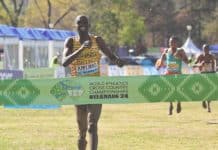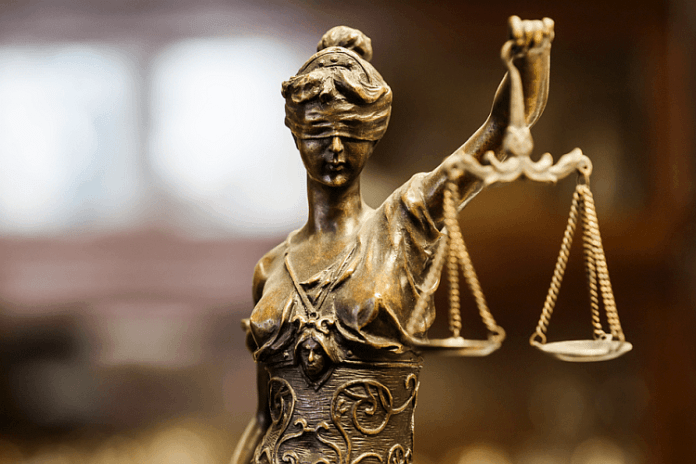A potentially significant case in the continuing tumult over sexual abuse of athletes came down on Thursday (1st), with the California Supreme Court unanimously confirming the ability of three female plaintiffs to sue USA Taekwondo, but not the U.S. Olympic and Paralympic Committee.
The case, Yazmin Brown, et al vs. USA Taekwondo, et al (no. S259216) concerned allegations by three taekwondo athletes – Brown, Kendra Gatt and Brianna Borden – that their coach, Marc Gitelman, sexually abused them when they were teenagers, under the age of 18, at various times between 2007-11. Supreme Court Justice Leondra Kruger wrote:
“This went on for years until the sponsor of these competitions, USA Taekwondo (USAT), banned Gitelman from coaching. Gitelman was ultimately convicted of multiple felonies for the sexual abuse of the minor athletes he trained.”
The three women filed suit in October 2015 against Gitelman, USA Taekwondo, the USOPC, NV Taekwondo Fitness and Training Center, the Latin American International Taekwondo Federation and California United Taekwondo Federation.
USA Taekwondo and the USOPC filed demurrers, an objection contending that the facts alleged by the plaintiffs – assumed to be true at this stage only – do not constitute a legitimate action under the law. While Gitelman abused the plaintiffs, the two federations argued that they did not have a direct duty to prevent the abuse as Gitelman was not an employee of either organization.
The trial court agreed with both USA Taekwondo and the USOPC and ordered a dismissal of the suit against both. The plaintiffs appealed and the California Court of Appeal for the Second District held that while USA Taekwondo did have a duty to protect, the USOPC did not.
The plaintiffs appealed again and Justice Kruger explained why the state’s Supreme Court took the case:
“Distilling the principles articulated in prior cases, we now clarify that whether to recognize a duty to protect is governed by a two-step inquiry. First, the court must determine whether there exists a special relationship between the parties or some other set of circumstances giving rise to an affirmative duty to protect. Second, if so, the court must consult the factors described in [Rowland vs. Christian, 69 Cal.2d 108 (1968)] to determine whether relevant policy considerations counsel limiting that duty.”
These questions were dealt with at length in the Court of Appeal opinion, but it’s the Supreme Court’s opinion that counts. Justice Kruger noted that in California, the basic standard of care comes from sec. 1714 of the California Civil Code:
“First enacted in 1872, section 1714 provides: ‘Everyone is responsible … for an injury
occasioned to another by his or her want of ordinary care or skill in the management of his or her property or person.’”
and added in a footnote:
“[I]t bears emphasis that the relevant legal question is whether the defendant has engaged in activities that created or increased the plaintiff’s risk of harm. A defendant may have greater involvement in the plaintiff’s activities than a chance spectator yet play no meaningful part in exposing the plaintiff to harm.”
But against this broad standard of non-liability, there is a duty – based on other cases – and:
“We here focus, along with the parties, on another basis for finding an affirmative duty: In a case involving harm caused by a third party, a person may have an affirmative duty to protect the victim of another’s harm if that person is in what the law calls a ‘special relationship’ with either the victim or the person who created the harm.”
The plaintiffs argued that the 1968 Rowland case allows for a “special relationship” to exist with USA Taekwondo and the USOPC. But the Court determined that the language in a 2018 case was the standard to be used:
“[A] typical setting for the recognition of a special relationship is where ‘the plaintiff is particularly vulnerable and dependent upon the defendant who, correspondingly, has some control over the plaintiff’s welfare.’”
In the Court of Appeal decision (cited as Brown vs. USA Taekwondo, 40 Cal.App.5th 1077), that Court found that the USOPC had no such relationship to the plaintiffs, but that USA Taekwondo did:
“We conclude USAT, which is the national governing body for the Olympic sport of taekwondo, had a special relationship with Gitelman because Gitelman was required to register with USAT to coach taekwondo at USAT-sponsored competitions, athletes could only compete in competitions with registered coaches, USAT could (and later did) implement policies and procedures to protect athletes from sexual abuse by their coaches, and USAT could (and later did) bar Gitelman from coaching athletes at taekwondo competitions for his violations of USAT’s policies and procedures. USAT was therefore in a unique position to protect taekwondo youth athletes from harm.”
But:
“By contrast, USOC did not owe a duty to plaintiffs because it did not have a special relationship with Gitelman or plaintiffs. Although USOC had the ability to control USAT, including requiring it to adopt policies to protect youth athletes, it did not have direct control over the conduct of coaches.”
Thus, the California Supreme Court affirmed the Court of Appeal’s decision, which sends the case back to the trial court for further proceedings – possibly including a trial – but without the USOPC as a defendant.
The upshot of this case – which is based on California law and therefore not universally applicable in the U.S. – is that U.S. National Governing Bodies could be held liable for athlete abuse – in California – by an individual affiliated with the sport, such as being required to register with that NGB. That will be applied against all U.S. NGBs, who have national authority over their sports, in cases filed in California.
At the same time, but again limited by the fact that this is a California case, the USOPC has no such duty, at least in situations in which it does not have “some control over the plaintiff’s welfare.”
In the ongoing proceedings against USA Gymnastics still at the U.S. Bankruptcy Court for the Southern District of Indiana, this case is not binding as it’s a state court decision. But many of the cases against USA Gymnastics and the USOPC in the Nassar abuse scandal have been filed in California and this new decision could impact those cases if there is no resolution to the continuing settlement conference and the cases go to trial.
However, it is also true that the USOPC could well be found to have the requisite “special relationship” once one or more of its officers were informed of the abuses by former USA Gymnastics team physician Larry Nassar, reportedly in July of 2015.
For the USOPC, this decision is still good news, at least retrospectively. However, its increased responsibility for NGB oversight in the Empowering Olympic, Paralympic and Amateur Athletes Act of 2020 means whatever advantage it received on Thursday from the California Supreme Court might be recalibrated in the future.
And the USOPC is certain to remain much concerned about the financial health of its NGBs in cases like this one where the federation could be subject to severe financial penalties.
The one sure result is that Brown, Gatt and Borden – and USA Taekwondo and the other defendants – are headed back to a California trial court.
You can receive our exclusive TSX Report by e-mail by clicking here. You can also refer a friend by clicking here, and can donate here to keep this site going.
For our 649-event International Sports Calendar for 2021 and beyond, by date and by sport, click here!




















